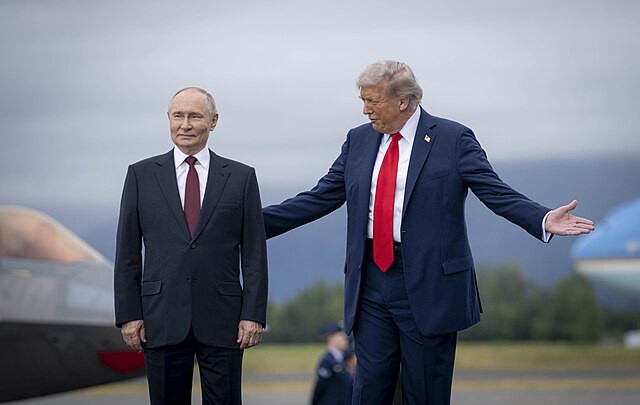Russia's President Vladimir Putin agreed for the first time to let the United States and European allies extend NATO-style protections to Ukraine as part of ongoing negotiations to end the war, U.S. special envoy Steve Witkoff said on Sunday. The concession, revealed after Friday's Alaska summit with President Donald Trump, marks a potential shift in Moscow's long resistance to Kyiv's NATO ambitions.
"We were able to win the following concession: That the United States could offer Article 5-like protection, which is one of the real reasons why Ukraine wants to be in NATO," Witkoff told CNN's State of the Union. He added that it "was the first time we had ever heard the Russians agree to that" and described the move as "game-changing."
Witkoff and Secretary of State Marco Rubio, who joined Trump in the three-hour talks, said the discussions signaled progress toward a possible peace framework. Article 5, the cornerstone of the 32-member alliance, treats an attack on one member as an attack on all. Trump's team suggested that such a guarantee could serve as an alternative to NATO membership for Ukraine.
European Commission President Ursula von der Leyen welcomed the development during a news conference in Brussels with Ukrainian President Volodymyr Zelenskyy. "We welcome President Trump's willingness to contribute to Article 5-like security guarantees for Ukraine and the 'Coalition of the willing' - including the European Union - is ready to do its share," she said.
Zelenskyy expressed cautious optimism but underscored uncertainties. "It is important that America agrees to work with Europe to provide security guarantees for Ukraine," he said. "But there are no details how it will work, and what America's role will be, Europe's role will be and what the EU can do, and this is our main task, we need security to work in practice like Article 5 of NATO, and we consider EU accession to be part of the security guarantees."
Witkoff disclosed that Moscow had also agreed to draft legislation pledging not to violate other European borders, though details remain scarce. On Fox News Sunday, he said: "The Russians agreed on enshrining legislatively language that would prevent them from... attempting to take any more land from Ukraine after a peace deal."
Rubio cautioned against overreliance on sanctions to force Russian concessions. "If he did this now, the moment the president puts those additional sanctions, that's the end of the talks," he said on CBS's Face the Nation. He added that both Kyiv and Moscow would need to compromise. "If one side gets everything they want, that's not a peace deal. It's called surrender," he told CNN.
Trump amplified optimism in a weekend post declaring "BIG PROGRESS ON RUSSIA. STAY TUNED!" without elaborating. U.S. officials, meanwhile, said they had begun security discussions with European advisers to prepare a framework that could be presented to Russia as part of a broader peace agreement.
Zelenskyy and European leaders including von der Leyen are scheduled to meet Trump at the White House on Monday. Rubio said the progress in Alaska justified additional diplomacy. "I'm not saying we're on the verge of a peace deal, but I am saying that we saw movement, enough movement to justify a follow up meeting with Zelenskyy and the Europeans," he said.





